
Native Son (1940) is a novel written by the American author Richard Wright. It tells the story of 20-year-old Bigger Thomas, a black youth living in utter poverty in a poor area on Chicago's South Side in the 1930s.

James Arthur Baldwin was an American writer. He garnered acclaim for his work across several forms, including essays, novels, plays, and poems. His first novel, Go Tell It on the Mountain, was published in 1953; decades later, Time magazine included the novel on its list of the 100 best English-language novels released from 1923 to 2005. His first essay collection, Notes of a Native Son, was published in 1955.
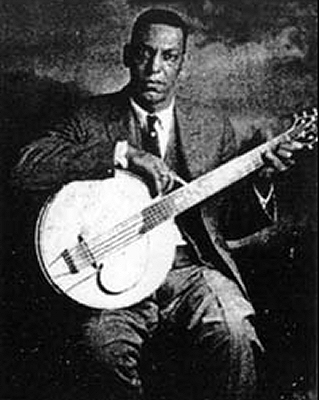
Papa Charlie Jackson was an early American bluesman and songster who accompanied himself with a banjo guitar, a guitar, or a ukulele. His recording career began in 1924. Much of his life remains a mystery, but his draft card lists his birthplace as New Orleans, Louisiana, and his death certificate states that he died in Chicago, Illinois, on May 7, 1938.

David Edward Leslie Hemmings was an English actor and director. He is best remembered for his roles in British films and television programmes of the 1950s, 1960s and 1970s, particularly his lead role as a trendy fashion photographer in the hugely successful avant-garde mystery film Blowup (1966), directed by Michelangelo Antonioni. Early in his career, Hemmings was a boy soprano appearing in operatic roles. In 1967, he co-founded the Hemdale Film Corporation. From the mid-1970s on, he worked mainly as a character actor and occasionally as director.

Elmore Rual "Rip" Torn Jr. was an American actor whose career spanned more than 60 years. He was nominated for the Academy Award for Best Supporting Actor for playing Marsh Turner in Cross Creek (1983). Torn's portrayal of Artie the producer on The Larry Sanders Show received six Emmy Award nominations, winning in 1996. He also won an American Comedy Award for Funniest Supporting Male in a Series, and two CableACE Awards for his work on the show. Torn is also known for his roles as Zed in the Men in Black franchise (1997–2002) and Patches O'Houlihan in Dodgeball: A True Underdog Story (2004).

Come Back to the 5 & Dime, Jimmy Dean, Jimmy Dean is a 1982 comedy-drama film and an adaptation of Ed Graczyk's 1976 play. The Broadway and screen versions were directed by Robert Altman, and stars Sandy Dennis, Cher, Mark Patton, Karen Black, Sudie Bond, and Kathy Bates.
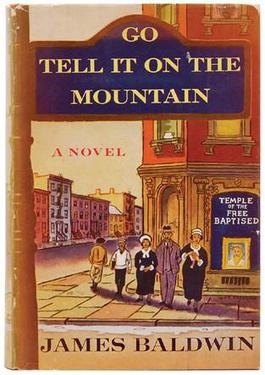
Go Tell It on the Mountain is a 1953 semi-autobiographical novel by James Baldwin. It tells the story of John Grimes, an intelligent teenager in 1930s Harlem, and his relationship with his family and his church. The novel also reveals the back stories of John's mother, his biological father, and his violent, fanatically religious stepfather, Gabriel Grimes. The novel focuses on the role of the Pentecostal Church in the lives of African Americans, both as a negative source of repression and moral hypocrisy and a positive source of inspiration and community. In 1998, the Modern Library ranked Go Tell It on the Mountain 39th on its list of the 100 best English-language novels of the 20th century. Time magazine included the novel on its list of the 100 best English-language novels released from 1923 to 2005.
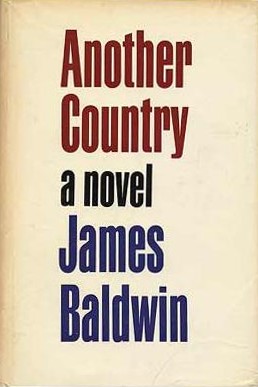
Another Country is a 1962 novel by James Baldwin. The novel is primarily set in Greenwich Village, Harlem, and France in the late 1950s. It portrayed many themes that were taboo at the time of its release, including bisexuality, interracial couples and extramarital affairs.

Ralph Waite was an American actor, best known for his lead role as John Walton Sr. on The Waltons (1972–1981), which he occasionally directed. He later had recurring roles as two other heroic fathers; in NCIS as Jackson Gibbs, the father of Leroy Jethro Gibbs, and in Bones, as Seeley Booth's grandfather. Waite had supporting roles in movies such as Cool Hand Luke (1967), Five Easy Pieces (1970), The Grissom Gang (1971), The Bodyguard (1992), and Cliffhanger (1993).

Ensign Pulver is a 1964 American Technicolor film in Panavision and a sequel to the 1955 film Mister Roberts. The film stars Robert Walker Jr., Burl Ives, Walter Matthau and Tommy Sands and features Millie Perkins, Larry Hagman, Kay Medford, Peter Marshall, Jack Nicholson, Richard Gautier, George Lindsey, James Farentino and James Coco.

Jonathan David Samuel Jones was an American jazz drummer. A band leader and pioneer in jazz percussion, Jones anchored the Count Basie Orchestra rhythm section from 1934 to 1948. He was sometimes known as Papa Jo Jones to distinguish him from younger drummer Philly Joe Jones.
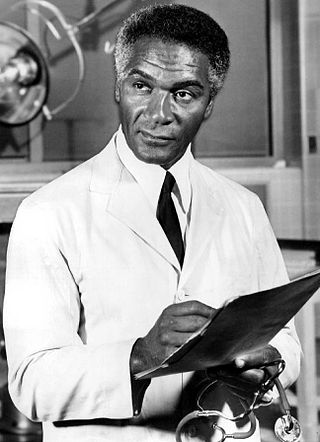
Percy Rodriguez was a Canadian actor who appeared in many television shows and films from the 1950s to the 1980s. He was of Afro-Portuguese heritage and was born in the Saint-Henri neighbourhood of Montreal. Born with the surname "Rodrigues," he adopted the spelling "Rodriguez" after it was misspelled in a Broadway program early in his career. Rodriguez was also known for his extensive voiceover work as the narrator of film trailers, television spots and documentaries.

Mister Buddwing is a 1966 American film drama starring James Garner, Jean Simmons, Suzanne Pleshette, Katharine Ross, and Angela Lansbury. Directed by Delbert Mann, the film depicts a well-dressed man who wakes up on a bench in Central Park with no idea who he is. He proceeds to wander around Manhattan desperately trying to figure out his own identity. He meets various women, played by Lansbury, Ross, Pleshette, and Simmons, and each woman triggers fragments of his deeply-buried memories.
"Sonny's Blues" is a 1957 short story written by James Baldwin, originally published in Partisan Review. The story contains the recollections of a black algebra teacher in 1950s Harlem as he reacts to his brother Sonny's drug addiction, arrest, and recovery. Baldwin republished the work in the 1965 short story collection Going to Meet the Man.

David Schofield is an English actor. He is best known for his role as Ian Mercer in the films Pirates of the Caribbean: Dead Man's Chest (2006) and Pirates of the Caribbean: At World's End (2007). He also appeared in the films An American Werewolf in London (1981), Gladiator (2000), From Hell (2001), Valkyrie (2008), The Wolfman (2010) and Darkest Hour (2017).
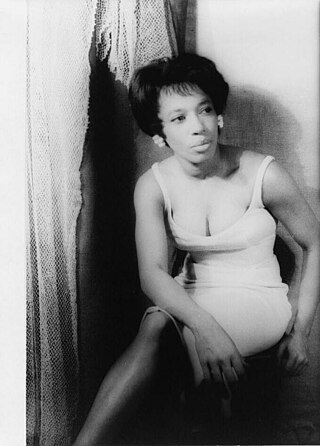
Diana Patricia Sands was an American actress, perhaps most known for her portrayal of Beneatha Younger, the sister of Sidney Poitier's character, Walter, in the original stage and film versions of Lorraine Hansberry's A Raisin in the Sun (1959).
Major "Mule" Holley Jr. was an American jazz upright bassist.

Mama Loves Papa is a 1945 American black-and-white comedy film directed by Frank R. Strayer, and written by Monte Brice, with a story by Keene Thompson and a screenplay by Charles E. Roberts, as a loose remake of the 1933 film Mama Loves Papa, written by Douglas MacLean. The film was produced by RKO Radio Pictures and stars Leon Errol and Elizabeth Risdon.
Mister Charlie is a pejorative expression formerly used within the African-American community to refer to an imperious white man. Occasionally, it refers to a black man who is arrogant and perceived as "acting white".
"Episode 6550" of the British television soap opera EastEnders was broadcast in the United Kingdom on BBC One on 5 September 2022. The episode was directed by Toby Frow and written by Simon Ashdown. It takes the form of a flashback episode, set in both the present and in January 1979, and explores the reason for DCI Samantha Keeble's vendetta against the Mitchell family.














